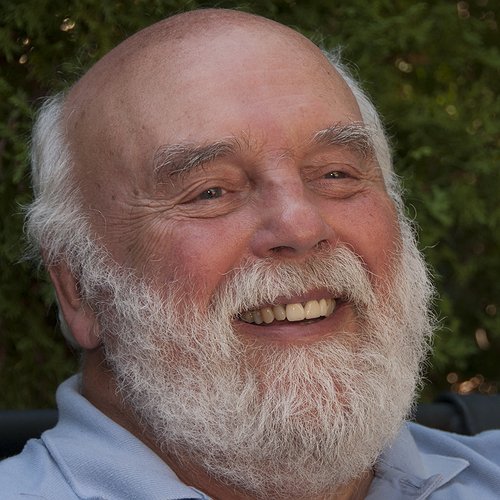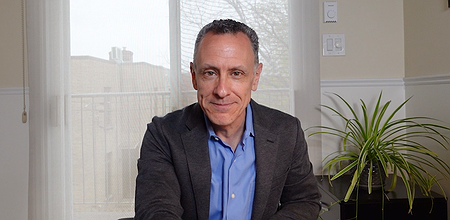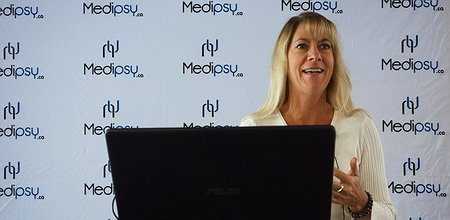- Identify and intervene for different types of emotional processing
- Master how to do an emotion-focused case formulation
- Identify phases in emotional processing to resolve self-critical splits
- Change emotion with emotion
Emotion-focused therapy: Changing Emotion with Emotion
Prof. Leslie Greenberg, Psychologist
Identify dysfunctional emotional patterns, promote adaptive emotional expression, and facilitate emotional regulation with your clients.
Excerpt:
- 4h of continuing education
- 21 lessons that last from 5 to 15 minutes each
- 1 certificate of achievement
- 1 PowerPoint
- 1 bibliography
- 1 course evaluation
- 7-day money back guarantee
- Unlimited access
- 97% of participants who completed the satisfaction survey declare they would recommend this course to a colleague
Overview
In many ways, emotions guide our lives. As such, they play a significant role in any form of therapy. This workshop, specifically designed for clinicians by Dr. Les Greenberg, one of the primary developers of Emotion-Focused Therapy, will provide you with multiple techniques for identifying dysfunctional emotional patterns, promoting adaptive emotional expression and facilitating emotional regulation in your clients.
He will explain the role of primary and secondary emotion, adaptive and maladaptive emotion as well as productive and unproductive emotional processing. The key principles and advanced methods for changing emotion will be presented in depth, enriched by videos of therapy sessions and clinical presentations.
Dr. Greenberg will also demonstrate the role of memory consolidation in changing emotion with emotion and present strategies of moment-by-moment attunement to affect, and the use of two chair methods of dialoguing with parts of self and imagined significant others in order to access emotions.
Additionally, this training will explore:
- The development of emotions schemes
- The interaction between the affective system and meaning construction
- The role of first narratives in coded experience and the storying of affect
- How emotions are generated at different levels and their components
- How to identify the core painful emotion
- The different models of emotional processing
- The 6 major emotional change processes
- Various interventions strategies guided by differential emotion assessment
- How to access alternate emotion
- And much more…
Become an expert at working with emotions!
Accreditation
Collège des médecins du Québec
For physicians who practice psychotherapy, training recognized by the Ordre des psychologues du Québec is automatically considered as activities adopted by the Collège des médecins, in accordance with Article 3 of the Regulation.
For physicians who do not practice psychotherapy, the College evaluates each recognition request based on the following criteria:
- the relevance of the activity to the practice of the profession
- the skills and experience of the trainer
- the quality of the content and its adequacy with the physician's practice
- the pedagogical framework of the activity
- the quality of the documentation provided
- compliance with the training objectives set out in the regulation
- the presence of a certificate of participation or an evaluation
About the expert

Prof Leslie Greenberg, psychologist, with nearly five decades of experience.
He earned his Ph.D. in psychology from York University in 1975. His first academic position was at the University of British Columbia in counseling psychology. In 1981, he undertook an externship at the Mental Research Institute in California. Initially, he received training in client-centered therapy. Later, he expanded his training to include Gestalt therapy and gained exposure to numerous other approaches over the years, including systemic-interactional, psychodynamic, and cognitive therapy. In 1986, he returned to York University in Toronto as a professor of psychology, and is now Distinguished Research Professor Emeritus of Psychology. Dr. Greenberg is the primary developer of Emotion-Focused Therapy. He has published numerous articles and authored several pioneering books on Emotion-Focused Therapy, addressing topics such as the dynamics of emotion, love and power, therapeutic presence, generalized anxiety, forgiveness, and emotional change.
Dr. Greenberg is a founding member of the Society for the Exploration of Psychotherapy Integration (SEPI) and a past president of the Society for Psychotherapy Research (SPR), where he was honored with the Distinguished Research Career Award in 2004. The Canadian Psychological Association awarded him the Professional Award for Distinguished Contributions to Psychology as a Profession. Furthermore, the American Psychological Association recognized him with both the APA Award for Distinguished Professional Contributions to Applied Research and the Carl Rogers Award. He has also been on the editorial board of many psychotherapy journals. Currently, he trains individuals worldwide in emotion-focused approaches.
Learning objectives
Learning material
A theoretical course illustrated with clinical examples. This course is composed of videos of 5 to 15 minutes each. The PowerPoint of the course to download.
Syllabus
- PowerPoint
-
Foundations of Emotion-Focused Therapy
- 1. Introduction
- 2. Overall approach and theory functioning
- 3. Evidence based treatment
- 4. Introducing emotions
- 5. Emotions schemes
-
Understanding Emotion Processes and Assessment
- 6. What is meaning
- 7. Emotion generation
- 8. The dialectical construction of the self
- 9. Emotion assessment
- 10. Example of emotion assessment
- 11. Emotional dysfunction
- 12. Accessing emotion
- 13. Assessment of emotional awareness and expression
-
Emotional Transformation in Therapy
- 14. Emotional transformation processes
- 15. Accessing alternate emotion
- 16. Changing emotion with emotion example
- 17. Basic change process
- 18. Case formulation
- 19. Problem markers and tasks
- 20. Demonstration video
- 21. Conclusion
- Bibliography
CE Credits
Download a certificate of successful completion.
Audience
This training is intended for mental health professionals.
Your comments
"I was impressed with the instructor and would gladly follow all of his courses." (automatically translated)
A student
"Dr Greenberg is amazing!" (automatically translated)
A psychologist (Canada)
"thanks" (automatically translated)
A psychologist
"Just wanted to say "thank you" for a well designed online course and content that has been carefully developed through extensive research.
I have been actively avoiding this format, but am grateful to have had occasion to learn about Emotion Focused Therapy in this way." (automatically translated)
A psychotherapist
"More video, I find the client sessions so valuable to learning how to do EFT as a therapist"
A psychologist (Canada)
"Thank you Les Greenberg :)"
A psychotherapist (Canada)
"Love this course - the instructor was easy to understand. I loved the case demonstrations which put all of the theory into practice."
A psychotherapist (Canada)
Registration
Ask a question
Do you have a question? Then email us at contact@asadis.net
Frequently asked questions
-
Is there an evaluation at the end of the course?
To validate the achievement of the learning objectives, a final evaluation in the form of true/false questions is required. It must be completed in order to obtain the certificate of completion.
In addition, an optional self-assessment is offered at the beginning and end of the course, allowing you to measure your progress on the targeted skills.
These evaluations are not graded and are intended primarily to support your professional reflection.
-
I have a disability. Can I receive specific support?
Yes! This training is offered as a pre-recorded video format, without subtitles. If you have a disability, we can provide an adapted alternative (technical assistance for viewing or individual supervision). For any request, please contact our disability coordinator at the following address: contact@asadis.net
-
How long do I have access to the course?
After your registration, the course is accessible anytime and from anywhere with unlimited access.
-
When does the course start?
That is entirely up to you! When you buy a course, you'll receive an access link that you can activate when you want.
-
Is there a student rate?
Yes there is! To learn more, email us at contact@asadis.net.
You may also be interested in:
Legal notice
The courses offered by ASADIS are accredited by different professional organisations. In addition, ASADIS is approved by the Canadian Psychological Association to offer continuing education for psychologists. ASADIS maintains responsibility for the program.
The CPA’s approval of an individual, group, or organization as a CE Sponsor or Provider is restricted to the activities described in the approved application or annual report form. The CPA’s approval does not extend to any other CE activity the Sponsor or Provider might offer. In granting its approval, the CPA assumes no legal or financial obligations to Sponsors, Providers, or to those individuals who might participate in a Sponsor or Provider’s CE activities or programs. Further, responsibility for the content, provision, and delivery of any CE activity approved by the CPA remains that of the CE Sponsor or Provider. The CPA disclaims all legal liability associated with the content, provision, and delivery of the approved CE activity.






